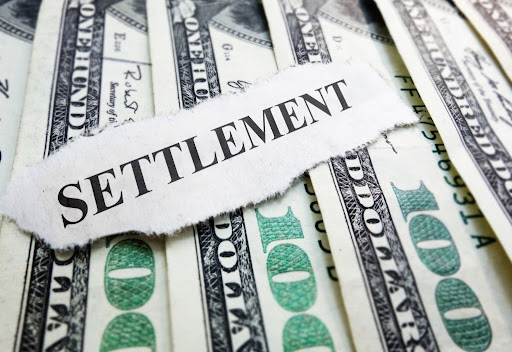
Experienced Wrongful Death Lawyers Explain How Wrongful Death Settlements Work in Washington
The shock of losing a loved one suddenly and tragically can be unbearable. This is especially true if your loved one died because of another person’s actions. The sudden financial impact of losing a spouse or child compounds your emotional and psychological suffering.
If your loved one died in a drunk driving car wreck, workplace accident, as a result of medical malpractice, or another wrongful act, you may be eligible to file a wrongful death claim. Wrongful death claims can help you recover financial losses and hold those who contributed to the death of your loved one responsible for their actions.
Wrongful death claims can be extremely complicated. You will need legal representatives you can trust. Representation from knowledgeable and experienced wrongful death claim lawyers can help you understand how wrongful death claims work and what goes into dividing wrongful death settlements among recipients.
At Brett McCandlis Brown & Conner PLLC, we are dedicated wrongful death claim lawyers who understand the stress you are under right now. We offer our most sincere condolences after the wrongful death of your loved one. Our firm vows to fight relentlessly for you and your family to help you recover financially and emotionally from your loss. We will strive to help you and your family find justice because your recovery is our priority.
What is a Wrongful Death Claim in Washington?
Washington State law provides the basis for wrongful death claims. A wrongful death claim arises when someone dies as a result of the wrongful act, neglect, or default of another.
Section 4.20.010 of the Revised Code of Washington (RCW) grants the personal representative of the deceased’s estate the right to bring a wrongful death claim. The personal representative is not a beneficiary of a wrongful death lawsuit.
Who Can Be a Personal Representative?
A personal representative represents the estate of the person who died. The law once referred to the personal representative as the “executor” if the person died with a will or the “administrator” if the person died without a will. Now, Washington law simply refers to a personal representative without regard to whether the deceased had a will.
The personal representative of an estate holds a very important position. Consequently, Washington law allows only a qualified person to be a personal representative of an estate.
The duties of a personal representative include distributing money, paying the final costs of the estate, and other legal duties.
If a personal representative is named in a will, then that person has the responsibility of filing a wrongful death claim. However, the court will appoint a representative if a person dies without a will.
Seasoned wrongful death claim attorneys will explain how they can help find the right person to represent the estate of your loved one. The personal representative could be a family member, a close family friend, or some other person that you trust. The personal representative of your loved one’s estate will bear the responsibility of dividing wrongful death settlements among recipients.
Who Can Be a Recipient of a Wrongful Death Settlement in Washington?
Under Washington State’s wrongful death statute, the personal representative is the person who files the case in court on behalf of the estate. RCW 4.20.020 lists who benefits from wrongful death settlements. The statute allows only the surviving spouse, state-registered domestic partner, children, stepchildren, parents, or siblings to benefit from the wrongful death claim. Moreover, the decedent’s parents or siblings become beneficiaries of the wrongful death lawsuit only if the person who died had no children, including stepchildren, and no spouse or state-registered domestic partner.
What Damages Can Recipients of Wrongful Death Settlements Receive?
In a wrongful death lawsuit, whether compensation for damages is awarded depends on the circumstances of the case. Because determining a just award of damages hinges on the facts of the case, you need the help of skilled and experienced wrongful death lawyers to offer evidence to the trier of fact (most often a jury) about various aspects of your loved one’s life and circumstances that caused their death:
- The age of the person when they died;
- The manner and means of death;
- The educational and professional background of the victim;
- The family ties the victim enjoyed;
- The financial effect of the victim’s death on the victim’s family;
- The emotional burden the victim’s death had on the family;
- The amount of money the victim could have earned over a lifetime;
- The amount of medical bills for treatment before death, if any;
- Funeral expenses and final disposition costs;
- The value of replacement services the victim normally performed, such as cooking and babysitting;
- Any other factor that helps the trier of fact understand how the death of the victim financially, emotionally, and psychologically affected the victim’s family.
Presenting this evidence convincingly is best left to attorneys who have extensive experience representing families in wrongful death suits. Attorneys with that kind of experience know how to assemble the case, find the right witnesses, and gather the evidence that makes a compelling case for you and your family.
Beneficiaries’ Rights to Claim Damages
The victim’s family may have rights to bring a claim separate from the wrongful death lawsuit.
A loved one could claim damages in their lawsuit such as:
- Loss of financial support;
- Loss of money, goods, and services;
- Lost inheritance;
- Loss of consortium or friendship; and
- Loss of emotional and psychological support.
An experienced wrongful death claim attorney can explain how these claims work and what compensation you may receive.
Dividing Wrongful Death Settlements Among Recipients Is Extremely Difficult
There are no hard and fast rules for dividing wrongful death settlements among recipients. The principles of justice will dictate how wrongful death settlements should be distributed. Wrongful death claims attorneys work diligently to make sure that all beneficiaries receive the compensation they deserve. Additionally, the parties will go before a judge to ensure that the settlement is fair and equitable.
How much each person receives depends on numerous factors. Each case turns on the facts. That’s why sitting down with experience and knowledgeable wrongful death claim lawyers as soon as possible will help you understand how wrongful death settlements are divided.
Let Our Experience Be Your Guide in Your Time of Loss
For nearly 50 years, the lawyers with Brett McDandlis Brown & Conner have won verdicts and settlements for their clients. Our experience helps us deliver the support you need when filing a wrongful death lawsuit. Our legal team has all received numerous awards for excellence based on evaluations from clients and peers.
When you need help, know that we are here for you and your family. Call the wrongful death claim lawyers from Brett McCandlis Brown & Conner PLLC at 206-488-1601 to learn what goes into dividing wrongful death settlements among recipients.


